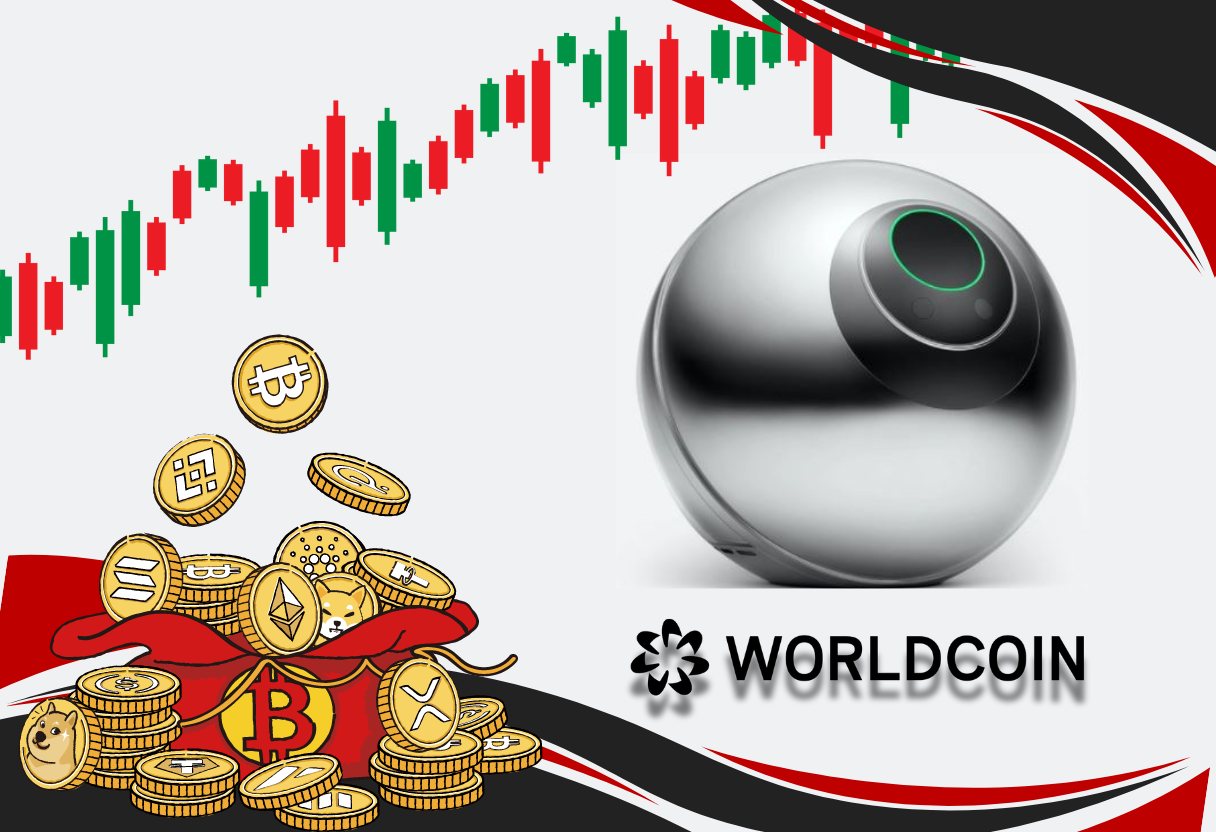
As Worldcoin celebrates its first anniversary, its vision of a universal digital identity system shows promise, boasting millions of users.
Ambitious Beginnings
One year ago, on July 24, 2023, Worldcoin launched with a vision that seemed straight out of a science fiction novel. Co-founded by OpenAI CEO Sam Altman, the project aims to create a universal digital identity and financial network by scanning people’s irises using futuristic “orb” devices, along with launching Worldcoin (WLD), the platform’s native digital token, and a globally recognized digital ID.
Innovative and Divisive Premise
Worldcoin’s core idea — creating a global identity system using biometric data — was both innovative and divisive. The project claimed to offer various use cases, from distinguishing humans from AI bots to providing a platform for universal basic income (UBI) distribution.
Mixed Reception
The initial reception to Worldcoin was polarized. On one side, the ambitious goals and high-profile backing attracted significant interest, drawing over 2.4 million subscribers within just four months of its launch. However, this enthusiasm was matched by skepticism and concern from privacy advocates and regulatory bodies. The large-scale collection of biometric data raised immediate red flags about potential misuse and data security risks.
Impressive Growth Despite Concerns
Despite these concerns, Worldcoin has grown significantly. In less than a year, the World App — Worldcoin’s native wallet — has amassed 10 million users across more than 160 countries, with two million daily active users and over 70 million transactions processed. The app is now among the top self-custodial wallets globally.
Recent reports indicate that Worldcoin processes an average of 7.1 transactions per second. The World App simplifies everyday crypto interactions, focusing on essential functions of Worldcoin and Ethereum, allowing users to authenticate their identity with World ID, execute global transactions, engage in crypto token swaps, and access Worldcoin Grants.

A Worldcoin orb at an event in London. Source: Cointelegraph
By the third quarter of 2023, Worldcoin had deployed around 119 orbs across 18 countries. In July 2024, the project launched an initiative to establish 1,500 orbs globally.
Regulatory Challenges
As Worldcoin celebrates its growth, it faces an increasingly complex regulatory landscape. Recent actions by regulatory bodies underscore these challenges. For instance, Hong Kong’s Office of the Privacy Commissioner for Personal Data issued an enforcement notice to the Worldcoin Foundation, citing privacy risks associated with the scanning and collection of iris and face images, calling the practice “unnecessary and excessive.”
This was not an isolated incident. Spain was the first country to ban Worldcoin’s biometric data collection practices in March. Portugal and Kenya also halted the project’s operations. India and South Korea have launched investigations into Worldcoin’s data practices, while Germany is examining the company’s compliance with the European Union’s General Data Protection Regulation.
The Future of Decentralized Identity Solutions
Despite these regulatory hurdles, the potential for decentralized identity (DiD) solutions is significant. The global decentralized identity market, valued at $647.80 million in 2022, is projected to grow at a compound annual growth rate (CAGR) of 90.3% between 2023 and 2030.
As Worldcoin enters its second year, it faces the dual challenge of sustaining growth while addressing regulators’ and privacy advocates’ concerns. The coming months will be crucial for the project. Its ability to navigate regulatory challenges, enhance transparency, and maintain user trust will determine its success in creating a truly global, decentralized identity system.
Moreover, as the world grapples with the implications of AI and the need for robust DiDs, Worldcoin’s evolution will be a major topic of discussion among technologists, policymakers, and privacy advocates in the coming months.
Source: Cointelegraph


Comments